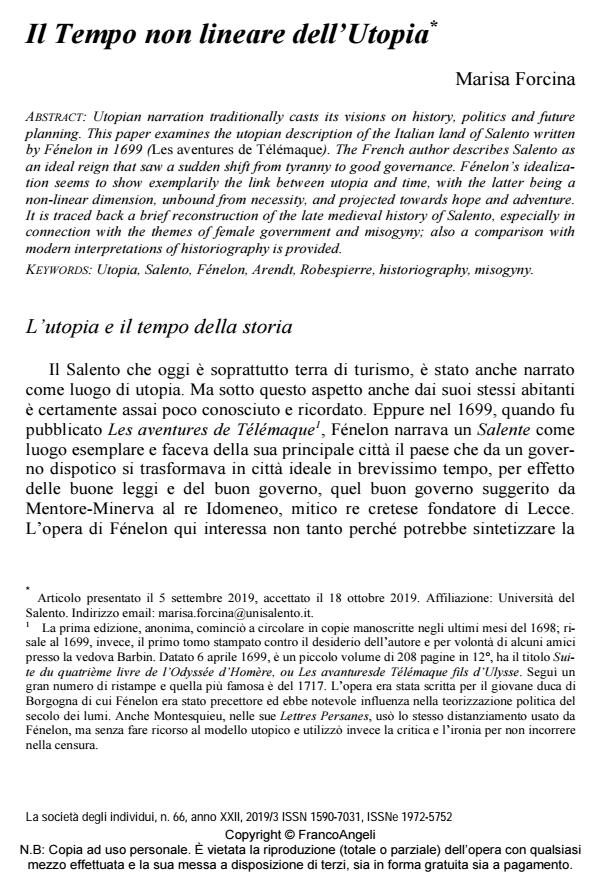Il Tempo non lineare dell’Utopia
Titolo Rivista SOCIETÀ DEGLI INDIVIDUI (LA)
Autori/Curatori Marisa Forcina
Anno di pubblicazione 2020 Fascicolo 2019/66
Lingua Italiano Numero pagine 16 P. 149-164 Dimensione file 220 KB
DOI 10.3280/LAS2019-066018
Il DOI è il codice a barre della proprietà intellettuale: per saperne di più
clicca qui
Qui sotto puoi vedere in anteprima la prima pagina di questo articolo.
Se questo articolo ti interessa, lo puoi acquistare (e scaricare in formato pdf) seguendo le facili indicazioni per acquistare il download credit. Acquista Download Credits per scaricare questo Articolo in formato PDF

FrancoAngeli è membro della Publishers International Linking Association, Inc (PILA), associazione indipendente e non profit per facilitare (attraverso i servizi tecnologici implementati da CrossRef.org) l’accesso degli studiosi ai contenuti digitali nelle pubblicazioni professionali e scientifiche.
Utopian narration traditionally casts its visions on history, politics and future planning. This paper examines the utopian description of the Italian land of Salento written by Fénelon in 1699 (Les aventures de Télémaque). The French author describes Salento as an ideal reign that saw a sudden shift from tyranny to good governance. Fénelon’s idealization seems to show exemplarily the link between utopia and time, with the latter being a non-linear dimension, unbound from necessity, and projected towards hope and adventure. It is traced back a brief reconstruction of the late medieval history of Salento, especially in connection with the themes of female government and misogyny; also a comparison with modern interpretations of historiography is provided.
Parole chiave:Utopia, Salento, Fénelon, Arendt, Robespierre, historiography, misogyny
Marisa Forcina, Il Tempo non lineare dell’Utopia in "SOCIETÀ DEGLI INDIVIDUI (LA)" 66/2019, pp 149-164, DOI: 10.3280/LAS2019-066018